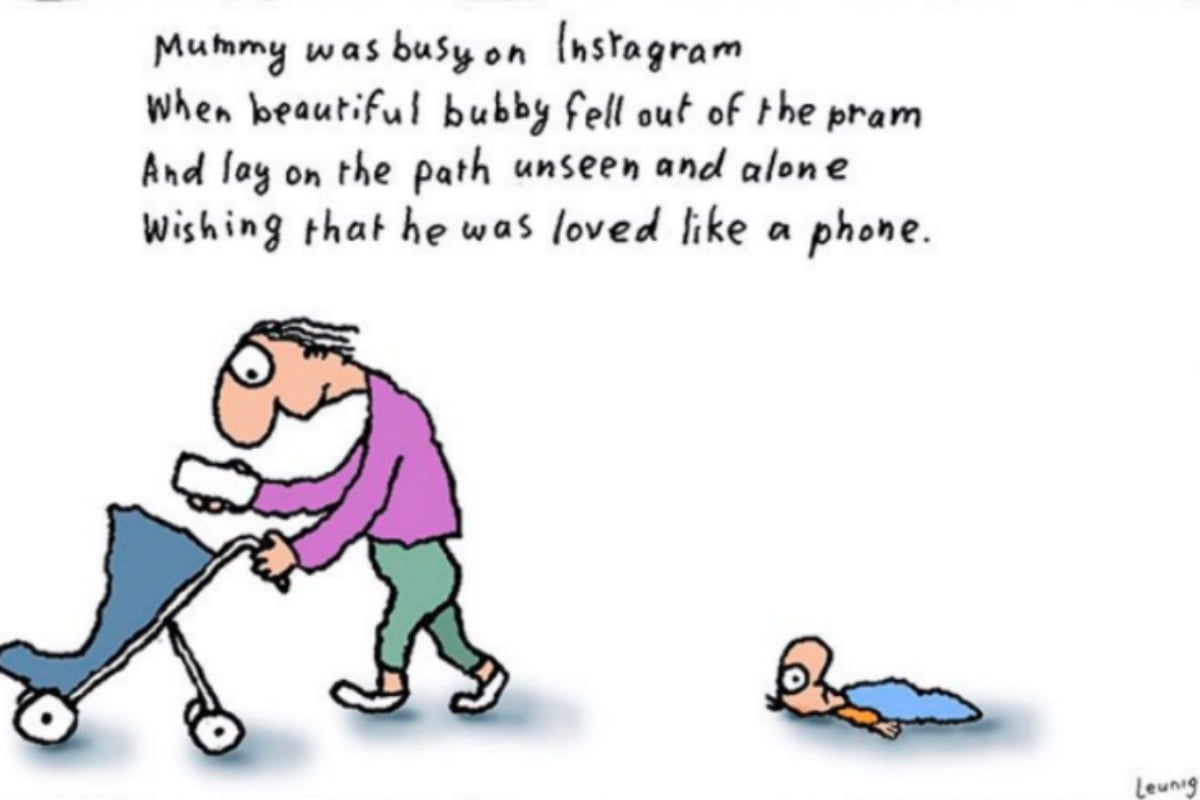
You’ve probably seen the backlash Michael Leunig received after his cartoon depicting a mother neglecting her baby for her phone was published in The Age and The Sydney Morning Herald on Wednesday.
There is little a mother can do these days without on or offline spectators slamming her. Mummy-shaming is real and rampant, and Leunig’s use of mummy was possibly a huge mistake, hindering his much more important message of our society’s addiction to social media.
As if daddies don’t do the same thing, Leunig, please.
Even though I understand why women took this cartoon as an attack on mothers, I believe Leunig was using the eternally profound image of mother and child to highlight what our addiction is doing to our most valued connections and society as a whole.
Artist William Hogarth used the same image in the harrowing Gin Lane to highlight the road to crisis the gin epidemic was paving in London. We look at this work today as epic, powerful, I haven’t heard any criticisms from feminists saying, “We were all addicted. This is mummy shaming. Do you have any idea what the dudes were doing? You do NOT want to know. Seriously.”


Top Comments
Every person needs to be mindful of mobile phone use. People bump into me on the street and when crossing the road because they are on their phones. One baby on the train in her pram the other night whilst her parents were both looking at their phones-she looked up at them, got no response and did not look up again for the rest of the trip. She had her own device at 12 months. She didn't look at anyone else. She didn't look happy, just very sad.
This cartoon must be heartbreaking for the woman in Adelaide who years ago was on her phone and didn't notice the pram and her baby roll into the river. I don't follow Leunig, so don't know his history shaming women, but if we take gender out of it, he is right.
IF we take gender out of it, and IF we ignore Leunig's previous track record, and IF we apply general rules to a very specific scenario, yes, then we have a universal message. However, it shouldn't be up to the reader to install so many filters in order to arrive at a non-offensive, general interpretation of what is literally a very, very pointed, gender-specific commentary.